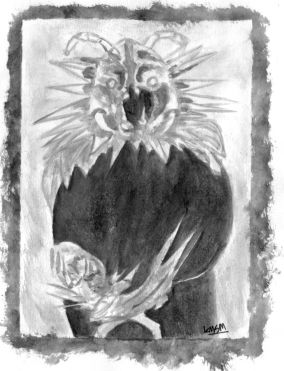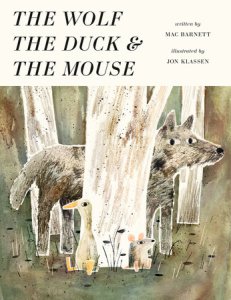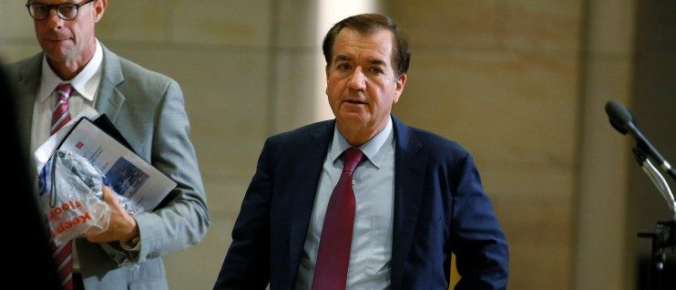 Susan has gone and with her the problems she was creating for the series, which was constantly framing the Doctor as a selfish patriarch who cared little about his own granddaughter’s safety as long as he was getting to be the tourist in space in time. Here she gets immediately replaced with somebody who could have been a carbon copy of her, with all the same inherent problems. Vicki is superficially an adopted granddaughter, similar in age to Susan, a young woman from the future, with only the TARDIS crew to rely on as her family. Cleverly the series avoids falling into the same traps by handling the relationship between the Doctor and Vicki in a very different manner to Susan, as we will see more clearly in the next story, but it starts here because bizarrely the relationship between the Doctor and Vicki seems to be a closer connection from the word go than the one between the Doctor and Susan ever was. This allows the Doctor to do what he should always have done with Susan: try to impress her by being a good role model and an influential friend, rather than trying to be her boss.
Susan has gone and with her the problems she was creating for the series, which was constantly framing the Doctor as a selfish patriarch who cared little about his own granddaughter’s safety as long as he was getting to be the tourist in space in time. Here she gets immediately replaced with somebody who could have been a carbon copy of her, with all the same inherent problems. Vicki is superficially an adopted granddaughter, similar in age to Susan, a young woman from the future, with only the TARDIS crew to rely on as her family. Cleverly the series avoids falling into the same traps by handling the relationship between the Doctor and Vicki in a very different manner to Susan, as we will see more clearly in the next story, but it starts here because bizarrely the relationship between the Doctor and Vicki seems to be a closer connection from the word go than the one between the Doctor and Susan ever was. This allows the Doctor to do what he should always have done with Susan: try to impress her by being a good role model and an influential friend, rather than trying to be her boss.
What this does so effectively is sets him on the path to actually being the Doctor as a character we are familiar with, somebody who shows up, identifies an injustice, and fixes it. Vicki is an outsider to the TARDIS crew at this stage, and she points out something that we have already noticed throughout the first series: the Doctor isn’t actually making things better. In fact (as we saw in The Aztecs), he often arrives, makes things a bit worse, and goes. That’s because he’s concerned simply with having a look around and then escaping from danger. Vicki calls him out on that at the point in the story that the Doctor and his companions have achieved nothing other than to kill her pet. Probably for the first time ever the Doctor rises to the challenge, goes off and sorts out the problem single-handedly. Ian and Barbara play no part in it at all. He is helped by the too-convenient appearance of a couple of Didonians at the end of the story, but hey, that’s Doctor Who as we still know it today. The Doctor is lucky.
But he hasn’t quite learnt how to be the hero yet. He has a good stab at it, but his attempt is predictably in line with the flawed character we have already seen a lot of: he arrogantly goes off on his own without confiding in the others, putting himself in a terribly dangerous position. To cap it all, he makes the first move in trying to attack Bennett, and nearly gets himself killed. He hasn’t yet learnt that violence isn’t the best solution, even though it might be the obvious one.
The plot itself is very tightly contained and the two-episode format works brilliantly, along with the very small cast. Doctor Who is often at its best when it plays out on a small scale. The one big criticism that is so often thrown at the story is that the identity of the villain is obvious, but this is simply not true and is a misunderstanding of the nature of the whole story. If this were a whodunit it would be a fair criticism, but it’s not. The story is not asking us to work out who the culprit is because the culprit is shown to be an alien monster. We are presented with a standard evil monster vs humans plot which has a clever twist. If you genuinely guess who Koquillion is without any foreknowledge of the plot then your brain works in very different ways to mine, because logic won’t lead you to think “that’s a man in a monster suit”. Koquillion is more convincing as an alien than the Voord, but nobody was thinking they were supposed to be men dressed up within the narrative of the story, rather than aliens. So when Koquillion is shown to be just a costume it is actually an unexpected and very brave move, because the next time we see a monster are we going to be able to believe in it, or still have that image in our minds of the head being taken off to reveal a man underneath? It’s not going to help that the next time we see aliens will be The Web Planet. Placing an historical story between the two was a wise move.
Thematically there is a lot going on here. There is a troubling air of domestic abuse about the whole thing. More significantly we are shown the pitfalls of xenophobia. The villain is shown to be a twisted human as opposed to the aliens, which are benign; this also taps in neatly to the human tendency to blame aliens for our own failings (i.e. conspiracy theories). Then we have Barbara’s xenophobia, when she assumes an alien creature is a monster and guns it down. It’s Sandy, Vicki’s pet. This shows Barbara in a very poor light, and it is remarkable that Vicki agrees to have anything to do with her, let alone travel with her. Barbara is not nearly as apologetic as she should be (she should be completely crushed by the guilt of what she has just done), failing to empathise sufficiently with Vicki’s trauma at losing a pet (which anyone who has been through that will know is horrendous) and also losing the one good thing in her life. Some tension between them going forward into future adventures would have been useful, but at least Vicki is shown to replace Barbara in the Doctor’s affections after this point to a large extent. Look at how he behaves towards Barbara in Planet of Giants, and how he behaves towards Vicki in The Romans. So we can interpret this as the Doctor finding a companion with greater potential and less of the 60s British establishment superiority nonsense. He doesn’t need a best friend who assumes anything that looks different is a threat to be exterminated, or he might as well travel around with a Dalek.
The Rescue is one of the most significant Doctor Who stories because it features the first ever change of regular cast. Maureen O’Brien’s task is not of the magnitude of Patrick Troughton’s in Power of the Daleks, but it is not a million miles away from it because the viewers had to accept a change of line-up, and she deserves more recognition than she gets for being one of the key figures who kept Doctor Who afloat when it could so easily have floundered. She is immediately the most interesting and enthusiastically acted companion we have seen so far.
The story ends with a perfect template of what companion debuts will become. Although she is from the far future from our perspective, Vicki is still amazed by the TARDIS, as she is shown taking her first tentative steps into a new life of adventure. It doesn’t matter when or where you are from, the TARDIS is still an amazing place to be. Doctor Who won’t always get this right (hello Tegan), but when it does it always owes a debt to The Rescue. RP
The view from across the pond:
While understanding may be a three-edged sword, aging is only a double edged one, but what a sword it is! Praise it or curse it, aging is part of life; the alternative is worse, at any rate. But it may be the universe’s price for giving us physical agility, looks, strength… until that fades. But the other side of that sword is that while we may become slower and greyer, our minds become sharper and a bit wiser. (Well, that is until even that goes and you start calling your grandkids “Woolley”…. Yes, this happened with my own grandfather, bless him! I guess it’s no different than being called “Chesterfield”.) But wisdom is a gift that comes with age. I look back on many of the choices I made as a younger man and think “how did I think that was a good idea?” Even Ambassador Sarek couldn’t convince me that those mistakes “seemed like a good idea at the time”. So sure, aging can be both predator and teacher. I see it as a good thing that I’ve learned enough to avoid repeating some of those youthful blunders.
So while I have been talking about scary things this week, from Robespierre’s Reign of Terror to the everyday greed of Planet of Giants, today we’ll look at another scary thing: youth. (“Don’t you mean old age?” Nope, I mean youth.) See, one hopes that by the time one is in his or her 20s, they are not fooled by Santa Claus. Sadly, this is not the case for new companion, Vicki. Youthful and unmarried-for-now, she lives with her friend Bennett on the planet Dido (which one Doctor Who book gave a totally different and far more shocking name by adding a single letter). Bennett is injured and bedridden; Vicki takes care of him. And there’s Koquillion. Koquillion is the evil monster that comes to see Bennett and Vicki from time to time. He’s the big baddie for the episode. Ian says he’d rather face Daleks than Koquillion. The problem is, Koquillion might as well wear a big red costume and white beard while “ho-ho-ho”-ing his way into the crashed spaceship that serves as home because Vicki is oblivious to the fact that Bennett and Koquillion are the same person. I wish Bennett would have told Vicki that Koquillion left through the chimney, just to see if she would piece it together then! It takes the Doctor and his wisdom to piece it together. He doesn’t even turn to face Koquillion in the cave when he addresses the “creature” as Bennett. This is clearly a commentary on youthful blindness versus age-driven wisdom.
In many ways, this story really does drive home the contrast between the old and young. The Doctor starts the story off very much an old man. He’s tired and forgets that his granddaughter recently left. There is a touching poignancy to that forgetfulness, made easier by the wonderful Ian and Barbara. But it’s there. Vicki also mentions that Ian and Barbara, from her point of view, are 500 years old. Vicki, by contrast is a bubbly, innocent girl not unlike the Doctor’s granddaughter. It’s no wonder the Doctor invites her to travel with him (making her the first companion he ever invites into the TARDIS). Of course there was the danger that if he left her there by herself, she’d probably either starve to death or hunt and kill the Easter Bunny to stay alive.
The story serves as an introduction for Vicki and little else. It’s not a particularly great story, and it does not paint Vicki in a particularly flattering light, at least intellectually! But here she is, traveling with the TARDIS crew and on her way to her first adventure. Hopefully, she’ll be a little wiser in her future stories.
And let’s all be grateful that with age comes wisdom. It would be even scarier if aging hadn’t any perks. That truly would be terrifying… ML
Advertisements Share this:




